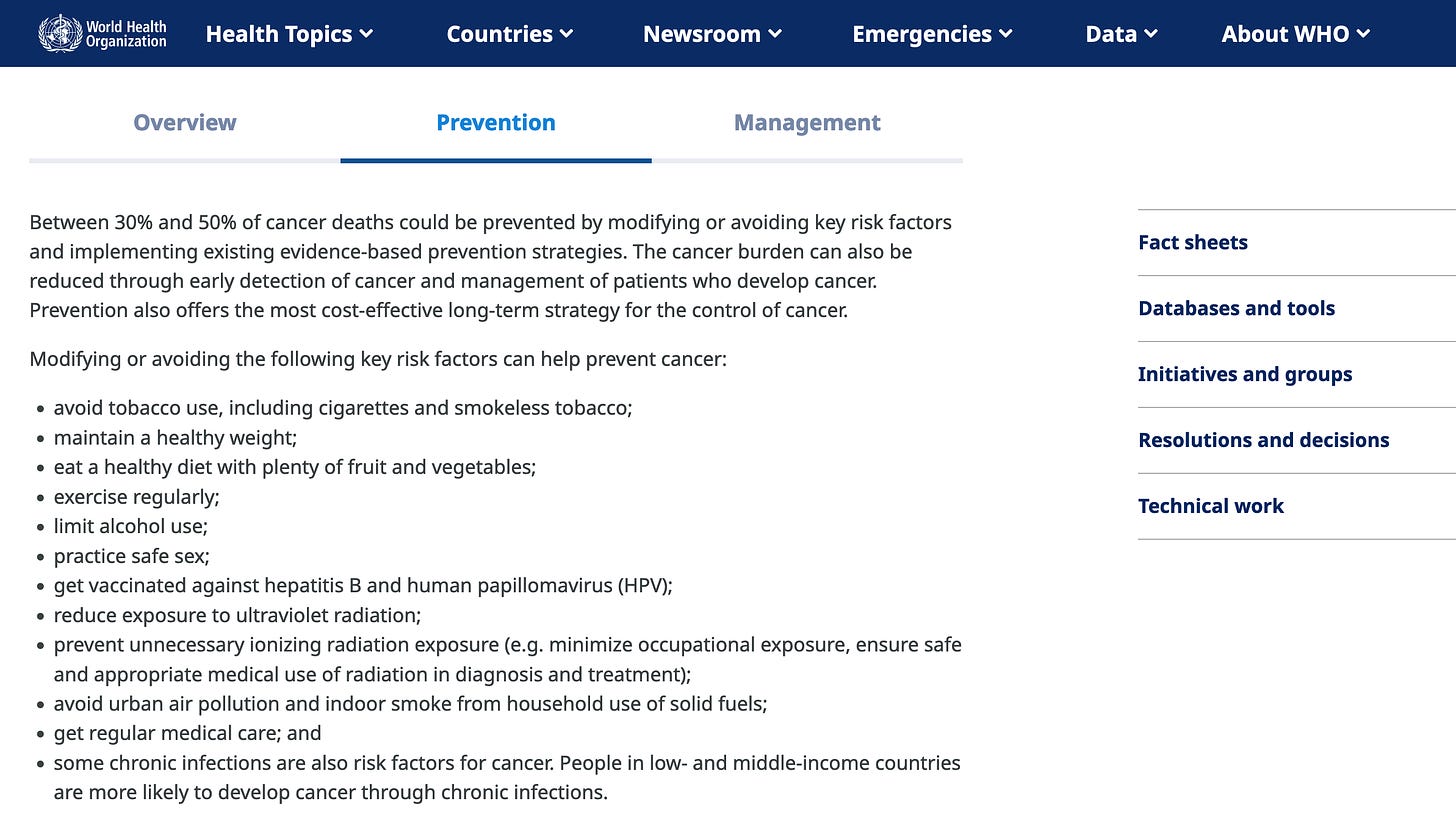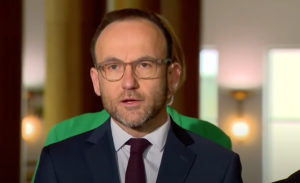Yet more media manipulation?

The latest media reports state that King Charles has cancer. This is a surprising revelation considering his recent seemingly successful treatment for an enlarged prostate, as reported in an article on January 26th entitled King Charles ‘doing well’ after prostate treatment.
The purpose, or one purpose at least, of reporting his diagnosis and treatment was to encourage other men to go for a checkup, as the article states,
“King Charles had made his health problem public as a way of sending a message to other men to get their prostates checked.”
The article continues,
“A statement from Buckingham Palace said the King was “delighted to learn that his diagnosis is having a positive impact on public health awareness”.
I would suggest however, based on my many years of research, that this will not have a ‘positive’ impact on the health of men who follow that advice and ‘get themselves checked’, as I will explain in this article.
A significant comment in the January 26th article is that,
“A benign prostate problem, which is non-cancerous, is common in older men, according to the NHS.”
The first point to emphasise is that the initial reports of his ‘prostate problem’ had the exact effect that was hoped for, i.e. increased ‘awareness’. It was reported that the prostate page of the NHS website received a huge increase in visits soon after the news reached the public.
A January 29th BBC article entitled Enlarged prostate: What is it and how to treat it, states that,
“An enlarged prostate is not usually serious, but can cause troubling symptoms needing treatment.”
In other words, don’t worry but do get yourself checked. Unfortunately, this advice tends to make people worry!
The article contains a section with the sub-heading Could it be prostate cancer? And it is this heading that will no doubt catch the attention of most men reading it – and of many women too who have now been made to feel concerned about their husbands, partners, sons, and fathers.
Although the article states that prostate enlargement is a benign condition, it also states,
“But the chances of developing prostate cancer also increase with age – and the symptoms can be similar.
So those with prostate problems should ask their doctor for a check-up.”
So I decided to investigate what would be involved in a ‘check-up’ and what I found was rather intriguing.
The NHS web page entitled PSA testing Prostate cancer, which was last reviewed on October 18th 2021, states,
“There’s currently no screening programme for prostate cancer in the UK. This is because it has not been proved that the benefits would outweigh the risks.”
Yet a News web page on the NHS website, a mere 7 months later on May 19th 2022, entitled Checks for prostate cancer hit all-time high on back of NHS and charity awareness campaign states,
“Record numbers of men are getting checked for prostate cancer thanks to a lifesaving awareness raising campaign, the NHS said today.”
Confused? Yes, I was too! However, the answer to the confusion lies in the fact that they are referring to different types of ‘check-up’. The NHS PSA testing web page states, under the heading Should you know your PSA level?
“Instead of a national screening programme, there is an informed choice programme, called prostate cancer risk management, for healthy men aged 50 or over who ask their GP about PSA testing. It aims to give men good information on the pros and cons of a PSA test.”
The article about the NHS campaign cited above states,
“The NHS teamed up with Prostate Cancer UK to deliver a six-week campaign from mid-February, urging men to use the charity’s online risk checker in a bid to reduce the shortfall in men starting prostate cancer treatment since the pandemic began.”
The words ‘shortfall in men starting prostate cancer treatment’ strike me as rather concerning, which is putting it mildly. Surely a ‘shortfall’ in numbers of men being treated would represent progress, because it would suggest that men are healthier, which should be the aim of a ‘healthcare service’, shouldn’t it?
The point they would seem to be making is however, that fewer men are making appointments to visit their GP for a check-up and so fewer men are being diagnosed with ‘prostate cancer’ and receiving treatment. But is this the route to improved health?
As I regularly state, problems can only be solved by addressing their causes.
This should lead people to ask the obvious question: What are the causes of prostate cancer?
Although we would expect the ‘healthcare system’ to give us a clear and definitive answer, this does not seem to be forthcoming. Instead, the NHS web page about the causes of prostate cancer makes the revealing statement that,
“It’s not known exactly what causes prostate cancer, although a number of things can increase your risk of developing the condition.”
I would add that, from the research I’ve conducted over the past 15 years, this is the explanation for just about every form of ‘cancer’.
It’s not surprising that the NHS merely refers to ‘risk factors’, rather than causes, because they are simply following the model of the WHO, as you can see from this web page.

The WHO also promotes the idea that the ‘cancer burden’ is growing,
“The cancer burden continues to grow globally, exerting tremendous physical, emotional and financial strain on individuals, families, communities and health systems.”
Not only that, the WHO predicts the situation to continue to worsen over the next few decades, as can be seen in the WHO News page entitled Global cancer burden growing, amidst mounting need for services dated February 1st 2024, which states, under the sub-heading Projected cancer burden increase in 2050,
“Over 35 million new cancer cases are predicted in 2050, a 77% increase from the estimated 20 million cases in 2022. The rapidly growing global cancer burden reflects both population ageing and growth, as well as changes to people’s exposure to risk factors, several of which are associated with socioeconomic development. Tobacco, alcohol and obesity are key factors behind the increasing incidence of cancer, with air pollution still a key driver of environmental risk factors.”
I’m not going to discuss these ‘risk factors’ in this article, however, I refute the claim that ‘Tobacco, alcohol and obesity are key factors…’.
Instead, I would ask all of you who are reading this to ponder how the use of surgery, chemotherapy, and radiation can be justified if these were truly the key ‘risk factors’.
I would add that there is an abundance of evidence to support other far more potent ‘key factors’ that contribute significantly to the rapidly rising incidence of cancer. And that one of those factors involves repeated exposures to ‘toxins’ of various descriptions, including some that are injected directly into the body.
Another very potent factor and one that is often overlooked, is not physical but mental, meaning that it is related to our ideas, thoughts, and beliefs.
The placebo effect is a well-known phenomenon. Its opposite, the nocebo effect, is less well-known, but possibly even more important because it represents a clear demonstration of how our thoughts and beliefs can manifest detrimental effects within our bodies.
The simplest example of the power of the mind can be shown from a recorded trial of a chemotherapy drug, in which one participant reported having experienced nausea and hair loss because she believed she was taking the actual drug. When the study was over, it was revealed that she had actually been part of the placebo group, which means that her ‘drug’ contained no active ingredients capable of producing those effects.
The power of the mind is a huge topic that I plan to cover in more depth in subsequent articles. However, it is relevant to include reference to it in this article because it directly relates to the recent news about the King’s health ‘problem’.
The ‘would-be controllers’ are perfectly well aware of human psychology and the power of the mind and so the ‘news’ is intended to encourage us to respond and react in certain ways. If you aren’t familiar with the book Propaganda by Edward Bernays, here’s an extract from Chapter One:

It was therefore inevitable – and intentional perhaps? – that, after hearing about the King’s cancer diagnosis, there would be a sharp increase in the number of people wanting to be ‘screened’ for cancer.
I would add that this ‘news’ would also inevitably result in a sharp increase in fear, which is known to be debilitating and prevents or at least restricts people’s ability to use discernment and critical thinking.
Furthermore, unlike the King, the vast majority of people do not have immediate access to ‘healthcare’, which is deemed to be a ‘problem’, as can be seen in a BBC article entitled How common is King’s incidental cancer diagnosis?
“But where the experience of the public differs from that of the King is how quickly all this happens – he was admitted to a private hospital, for treatment for the enlarged prostate, less than two weeks ago and has already started cancer treatment.”
Another important point to emphasise is the reference to ‘incidental diagnosis’, which, according to the article, is when the disease, meaning cancer, is spotted ‘during care for another condition’.
So, where is this taking us?
Although I clearly cannot prove this, I would suggest that one of the purposes of this media coverage is to foster greater fear of cancer and encourage an increased demand for screening. However, because of their limited resources, this increased demand will inevitably put a strain on the NHS and show its inability to cope, which will make people angry at the poor service they receive. This in turn, is likely to lead to a demand for ‘improvements to the NHS’. I foresee another ‘Save our NHS’ campaign looming in the near future.
If people are convinced that they need ‘their health system’ because that’s the only way they can resolve any health problem they have or are perceived to have, then they will fight to defend it.
But will saving and improving the NHS provide the solution?
My response to this is a decisive NO. The solution lies in a health system based on a true understanding of health.
Although I refer in this article to the situation in the UK, it is not something that applies exclusively to the UK. It will apply to all countries that operate a ‘healthcare system’ according to the WHO model of ‘modern medicine’.
The manipulation by the media, I would suggest, is therefore to persuade people that it is only this system of ‘modern medicine’ that has the ability to detect, diagnose and treat their condition.
If ‘modern medicine’ were truly a ‘healthcare system’, then people who follow that system ought to be the healthiest. Yet there is abundant evidence to show that this is not the case, because that system does not understand health and therefore it functions from the basis of a completely false paradigm.
A further point to consider is the phenomenon known as iatrogenesis, which I have discussed in a number of my other articles, such as this one:
Are doctors’ strikes really a disaster for our health?
The medical system in the UK, known as the NHS, is currently in crisis and I wholeheartedly agree! But the real nature of the crisis is not how it is portrayed by the mainstream media, which is demonstrated by a January 2023 BBC article entitled The NHS crisis – decades in the making
In addition, I would recommend reading the July 2000 article by Dr Barbara Starfield which I refer to in that article. I would point out that, interestingly, her article is no longer available from the link I provided. However, you can download and read it here:
In Summary
I would like to emphasise that I am not speculating about the actual state of King Charles’ health, I have no knowledge about it and make no comment.
What I am intending to convey in this article is how we are being manipulated by various media narratives to become fearful and take certain actions based on that fear that may be totally unnecessary and may lead to harmful interventions.
My purpose is always to provide information so that people can make truly informed decisions and not just react out of fear.
If you enjoy my work and find it useful as well as interesting, please consider supporting me.
Thank you. 🙏








